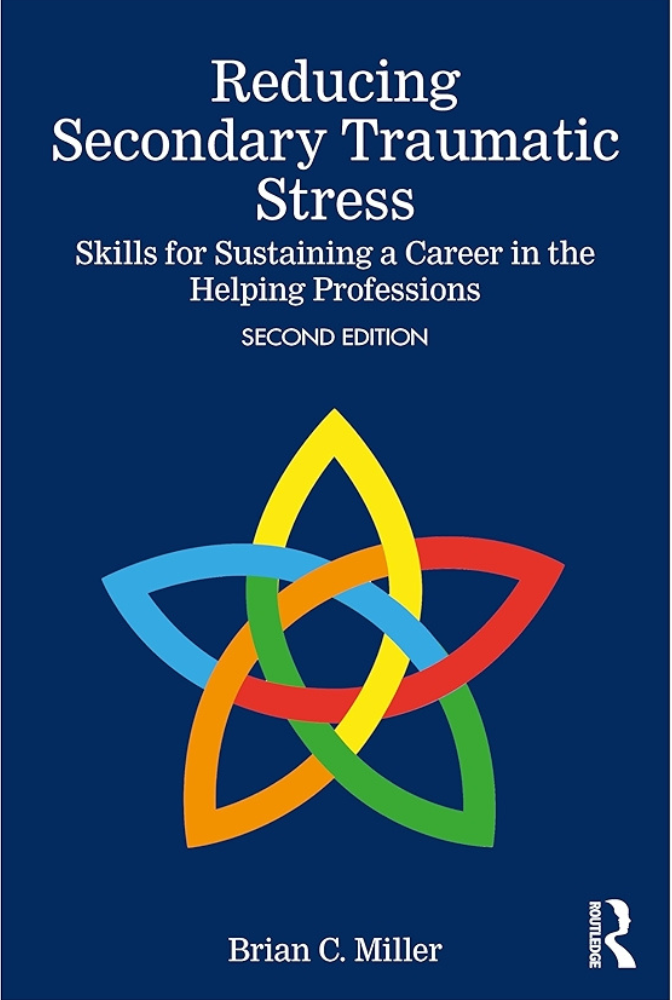Coming Home to Secondary Traumatic Stress
Coming Home to Secondary Traumatic Stress
I recently had a challenging week managing my secondary traumatic stress reactions.
What happened felt long past and yet familiar – I had not experienced symptoms this strong since leaving full-time clinical work. It kind of caught me by surprise, although, in hindsight, it shouldn’t have, and I think I know why it happened.
I had been working long hours in the office and sleeping less than I needed – because summer is short in Canada, and the sun was shining, and the nights were balmy, and there was live street music to be enjoyed, and late-night conversations with dear friends to be had, and BBQs to be cooked and shared with my wonderful children and their friends.
I had also been reading a beautiful, but deeply disturbing, fiction book before bed (I know, I know) and had spent six hours on a drive listening to a podcast about a con artist who ruins people’s lives. (I KNOW – “What the heck?!” right?)
Basically, I was doing all the things that I tell other people not to do – lack of sleep, extraneous trauma exposure, poor pacing…and my fatigue and vulnerability sort of crept up on me.
Then, in rapid succession during that same week, I heard a series of terrible trauma stories at work. If you work in this field, you know the ones that I mean: those that bring up another case that you thought you had long forgotten and had stored far in the recesses of your brain; or an image that sends a chill right up your spine; or stories that make you stop breathing for just a second as you lean towards the pain and suffering of the person in front of you, in a state of deep empathy.
To top it all – and this is important – one of these stories wasn’t something that I heard at work: I was visiting with a friend, having a lovely catch-up, sitting in the garden, and forty minutes into our chat, she shared, without warning, a terrible story that had just happened to someone in her life on this very same day. She shared all of the sounds and images of the accident as people do when they are processing trauma.
I don’t blame her for doing that, she was traumatized and needed my support and that is absolutely fine, but because we were chatting casually and I didn’t know the story was coming, it caught me off guard and hitched a ride with me for a few hours.
Coming Home
When there is a lot of secondary traumatic stress (STS) in me, I tend to withdraw from my family or steer all conversations towards hard topics related to my work. I still “show up” and cook and clean and do groceries and hug my kids, but I have very little mental energy left to engage in non-trauma conversation – especially if the topics are “civilian” concerns (the latest Congressional hearing? Blah) or one of my family’s three favourite topics (politics, gender politics, college basketball – someone save me). I normally enjoy a good smart debate about all of these topics, but when I’m full of STS, I just wish everyone would talk about cute puppies OR trauma.
This, in and of itself, is a solid warning sign for me, and I noted it as it occurred.
At the end of that week, my partner and I went on a lovely drive to visit some friends who live upstate New York – lush rolling hills and great music playing in the car.
I was quiet and reflective for the first hour. Finally, I told him – “This was a hard week for me. I heard a lot of difficult things, and although I won’t slime you with the content, it made me reflect on how it used to be for you when I did front-line trauma work full-time.”
He looked far off into the distance, took a deep breath, and replied: “Those times were really hard.”
Ok, so he’s a man of few words, but I knew what he was saying because we have been together for 30 years, and he has been a witness to my entire journey as a trauma clinician. We have discussed, in the past, my sometimes difficult transitions back into our home life, my irritability and lack of engagement in things that he is passionate or interested in. The way I sometimes withdraw to bed at 8pm because I am completely maxed out.
What is it like to be in a relationship with us? What is it like to be our friend when we don’t return calls for weeks or show up at birthday parties and tell a trauma story we think is hilarious but no one else does?
Resetting Our Foundation
So yes, I hear a lot of hard things in my job – and I am sure you do too – and it’s normally fine because I have a whole arsenal of tools to pace and reset myself, but that week, because of my “summer extravaganza” behaviours, I wasn’t as prepared and grounded as I usually am. I was working with a shakier foundation.
Since I teach and write about secondary trauma for a living, I also watch myself very carefully and take mental notes:
- Feeling very anxious for no reason
- Decreased appetite
- Hmm, interesting choice of night-time reading…
- Check me out picking a fight with my son before I even put my briefcase down – even though I had told myself ALL THE WAY HOME not to talk about this immediately as I walked in the door. (Awesome parent of the year award…)
By Friday midday, I was feeling completely out of sorts. However, because I know my STS symptoms so well, I didn’t let these things go on for very long. I decided to call it a day and took myself offline for a bit.
I went to do some non-trauma related stuff for myself (insert your favourite self-care activity here) which, on that day, involved a pedicure and buying a tool at the plumbing supply store. (And, yes, both things can co-exist in a person – a pedi and some bad-ass DIY.)
Yet during this mini-break, I noted my persistent level of hyperarousal. Throughout the afternoon, I was unable to shut off the overactive thinking and the list making.
So, I took a deep breath, went home, put the terribly sad fiction book away, watched an episode of Queer Eye (I LOVE THEM) and went to bed early for a proper night’s sleep.
The Journey Will Never Be “Done”
Coming home to STS is an ongoing process. We need to remain self-aware, take notes of shifts in our behaviours, pace ourselves, and listen to our loved one’s feedback when they say “you are not yourself today” (without biting their heads off). We also need to rest and restore our bodies and our brains, so that we can continue being present to all aspects of our lives.
This leads me to asking you the following questions:
- If you are a trauma-exposed professional, have you asked your loved ones/friends what it’s like to live/hang out with you when you are in the Yellow zone?
- What would they say about how you transition from work to home?
- What would they say about the impact hard stories and cases have on you? On them?
- Have you developed a keen self-awareness about your warning signs and when it’s time to take stock and reset yourself?
As I finish writing this post, I am sitting in my garden on a cool Sunday morning. There is a light breeze blowing and my daisies are gently bending in the wind. The raccoons that live under my shed just came home from their night of carousing and gave me a nod as they crawled back in their den (we have an understanding – they don’t bother me, I don’t bother them).
I feel strong and rested, but I am also keeping a close watch on my thoughts, behaviours, and choices that I make about taking care of myself. I love trauma work, but it can’t dominate every aspect of our lives if we are to continue providing high quality, ethical care.
There are so many things that we have no control over in our work – but how we take care of our bodies and our brains must remain at the top of the list.
Additional Resources
Read Dr. Brian Miller’s Reducing Secondary Traumatic Stress: Skills for Sustaining a Career in the Helping Professions, a wonderful resource of evidence-informed strategies for cultivating career satisfaction.
Follow the work of the Secondary Traumatic Stress Consortium, a thinktank of researchers, trainers, practitioners, and advocates with a common goal of “advancing the field of secondary traumatic stress towards health.”




